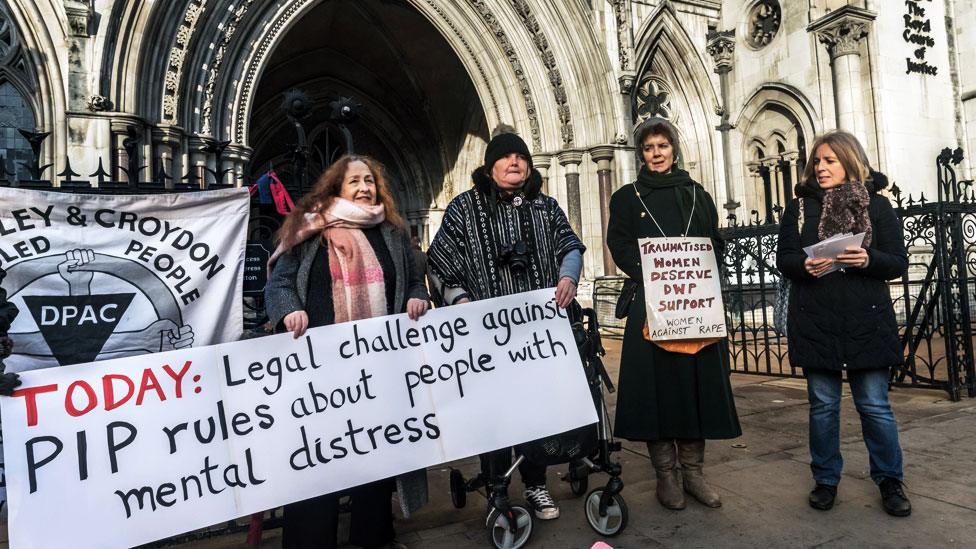PIP appeal delays: 'I had to sell my belongings to live'
- Published
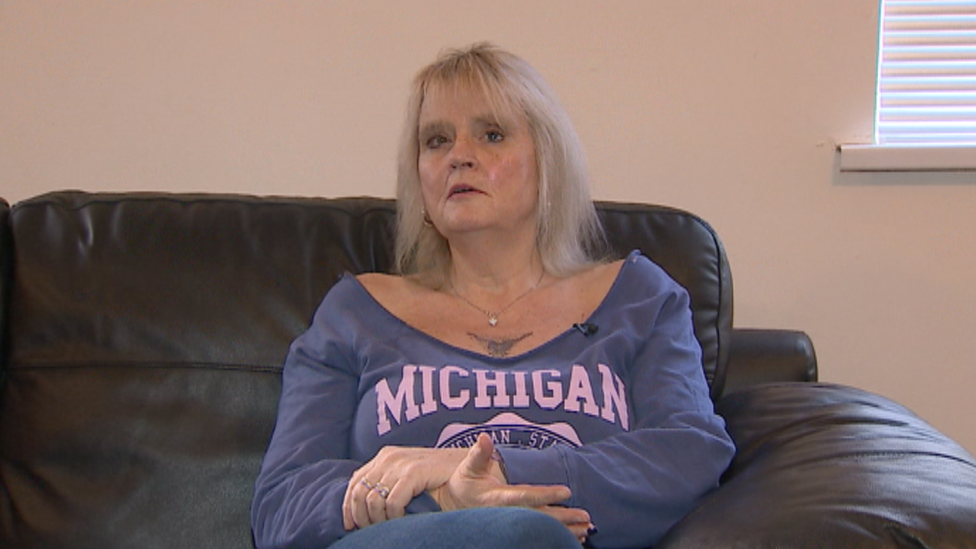
Denise Edwards said she was forced to sell her jewellery to make up the £480 per month she lost when she was refused PIP
A visually impaired woman said she had to sell her belongings to get by as she waited 17 months to appeal a decision to refuse her disability benefits.
Helpline support worker Denise Edwards, 53, was left £480 a month out of pocket after she was refused the higher rate of Personal Independence Payment (PIP).
Figures show one in 10 disabled people who challenged a PIP decision had to wait more than 10 months for money.
The UK government said it was "continuously improving the process".
The average delay to successfully appeal a PIP decision has more than doubled since 2014-15, a Freedom of Information request by BBC Wales has found.
Campaigners claim the assessments process is flawed, with about 72% of all PIP refusals overturned on appeal, external.
What is PIP?
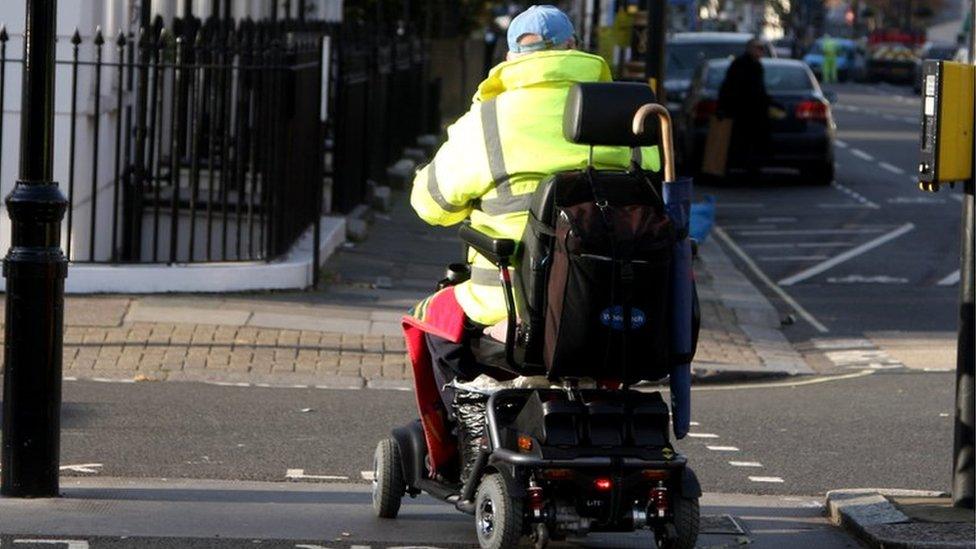
Personal Independence Payment replaced Disability Living Allowance in 2013
PIP has been gradually replacing Disability Living Allowance (DLA) as the main benefit for disabled or ill people since the rollout started in 2013. It is worth up to £145.35 a week.
It is designed to help towards the additional costs of a disability or long-term illness, such as help getting dressed, cooking meals or getting around.
PIP claimants often have to face controversial assessments, conducted by private companies on behalf of the Department for Work and Pensions (DWP).
The average wait for a successful appeal was 83 days in 2014-15, compared with 190 days in the first quarter of 2018-19. The DWP has so far only released first quarter figures for the current financial year.
Average delays were shorter in Wales but one in 10 people waited more than a year to win back money they were initially denied, according to the figures obtained under the Freedom of Information Act.
In Northern Ireland the Public Services Ombudsman is looking into "a significant number of complaints", pointing out that a "high number" of decisions on PIP applications have overturned.
Government research suggests that 37% of people do not appeal the DWP's, external decision because "the process would be too stressful" while 20% said they were "too unwell' to challenge it".
Sue Kemlo's daughter died before she was finally awarded PIP
'Extremely angry'
Ms Edwards, from Wrexham, is visually impaired and used a guide dog until recently.
She said she lost about £480 per month after a decision to refuse her PIP in February 2017. Ms Edwards struggled for 17 months before her appeal was heard and she won.
"It was actually stated I had corrected vision in both eyes, when in fact I've only got one eye and very limited vision in the other eye," she said.
"I had to sell stuff to try to live, like jewellery and stuff... luckily I had stuff to sell."
Ms Edwards claimed she had proven "categorically" that she had a disability which was not getting any better. She said she felt she was being persecuted by the DWP.
"I'm extremely angry, because people with disabilities find life difficult enough as as it is," she said.
"People on PIP don't want to be on it - they want to be like everybody else."
"I've been treated like a liar and a fake"
Meanwhile, Cardiff woman Holly Greader, 21, suffers with chronic pain, chronic fatigue syndrome and hypermobility, which causes her joints to dislocate and leads to severe pain.
Ms Greader said she had been made to feel like a liar and "a fake", adding that it brought back memories of being bullied at school.
"It can stop the months and months of pain, fatigue, anger and anxieties if they just got it right to start with," she said.
"This process was changed to make it better, but it's just gotten worse."
'Appalling'
Miranda Evans, of the Disability Wales charity, hit out at the UK government for the "appalling" but "unsurprising" delays.
"It's unacceptable that people are having to wait more than 12 months to successfully appeal against their decision for PIP," she said.
"Surely that has to happen sooner rather than put people through a traumatic period of time where they don't have access to that support to lead an independent life."
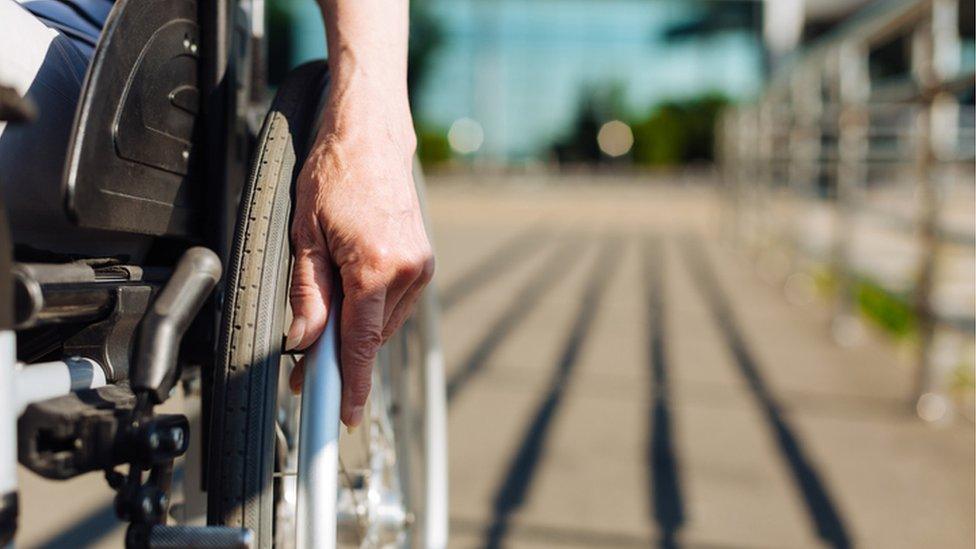
The DWP said 40% of claimants were getting more under PIP than they were under DLA
But the DWP said it was "committed" to ensuring disabled people get the support they need.
"Assessments work well for the majority of people, but one person's poor experience is one too many, and we're committed to continuously improving the process for people so that they get the support they need," a spokesperson said.
"Under PIP in Wales, 40% of people are getting a higher rate of support than they were previously getting under DLA. 3.7m PIP decisions have been made, and of these 10% have been appealed and 5% have been overturned.
"Decisions are overturned because people have submitted more oral or written evidence."
- Published21 February 2019
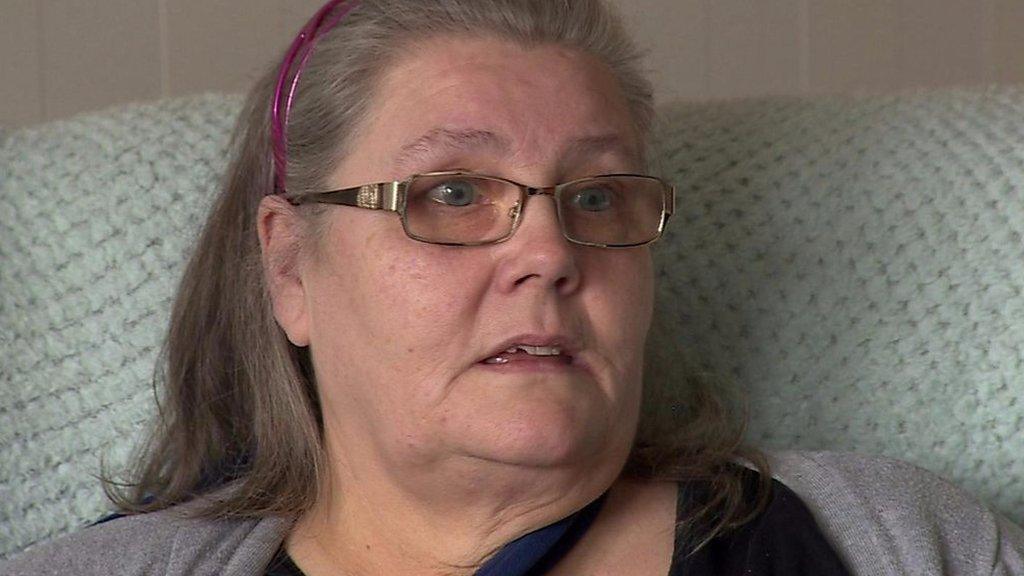
- Published23 May 2018
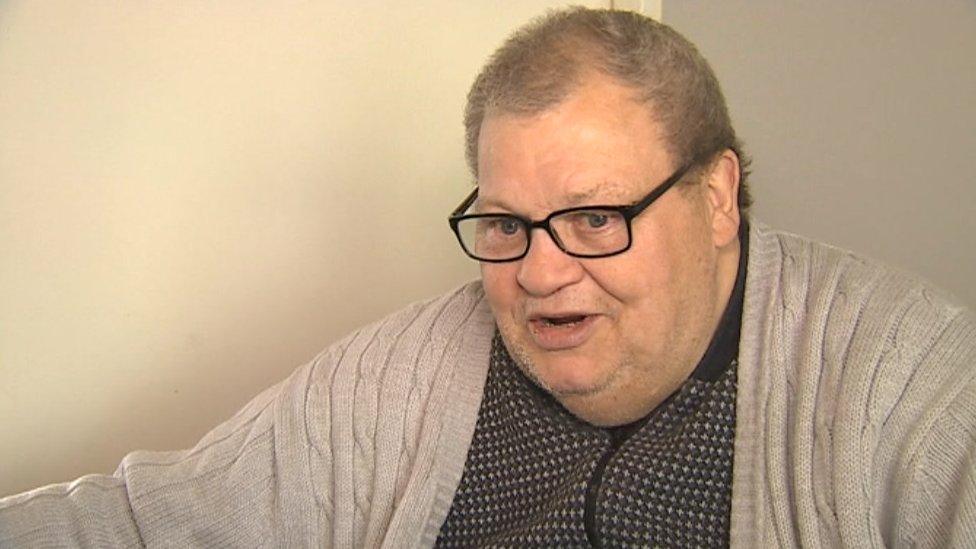
- Published18 May 2018
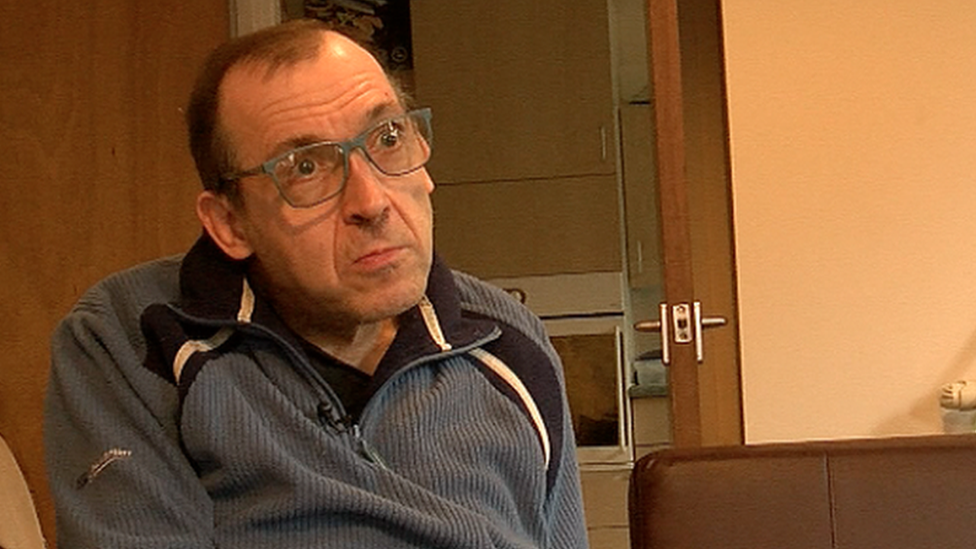
- Published1 February 2018
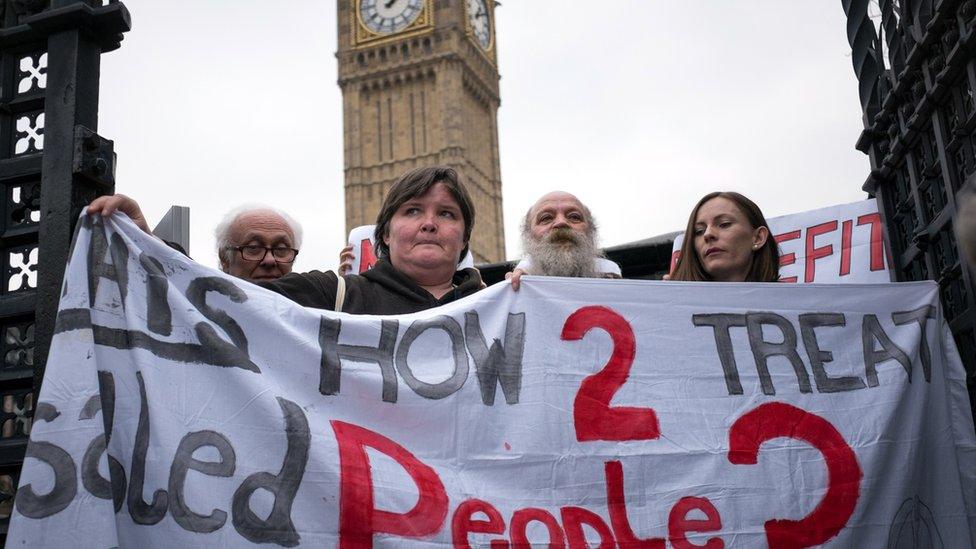
- Published8 November 2017
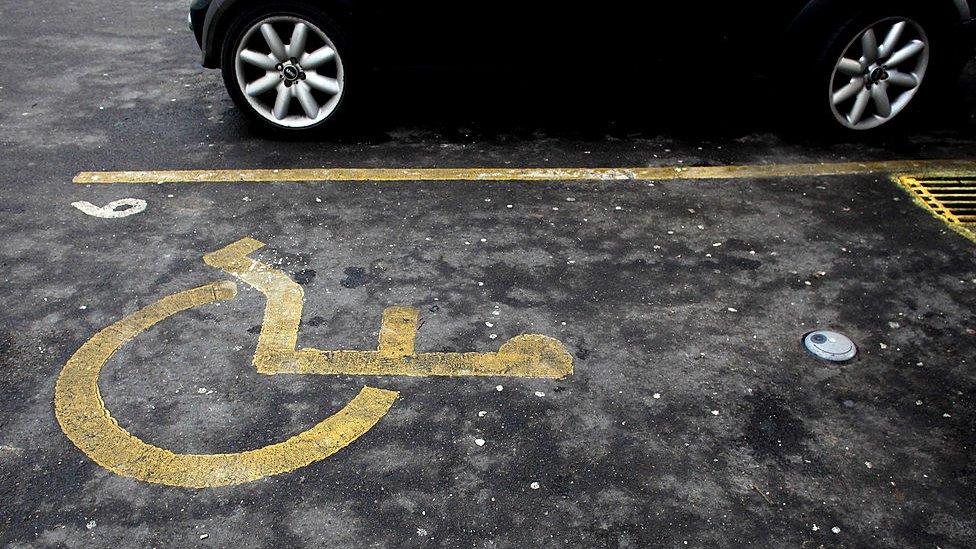
- Published16 October 2017
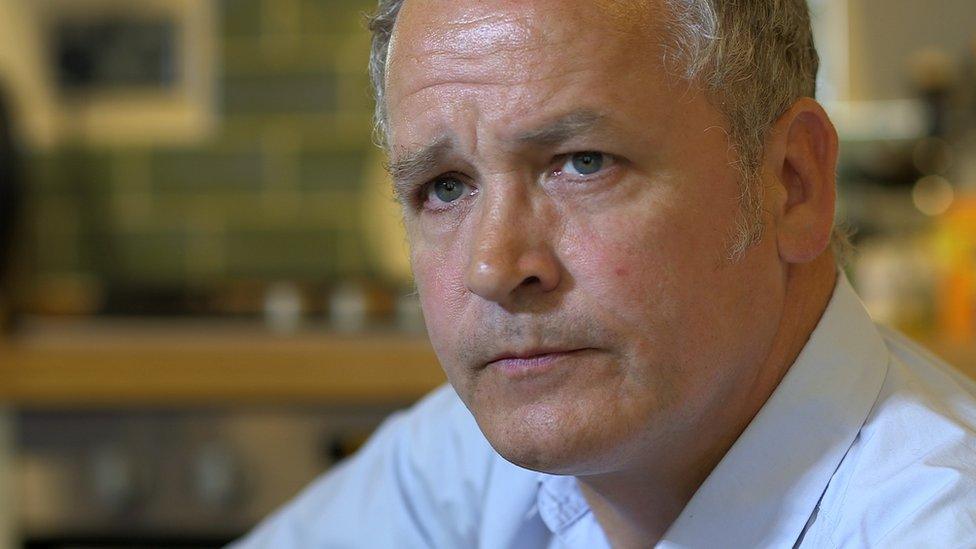
- Published30 April 2018

- Published30 January 2018
